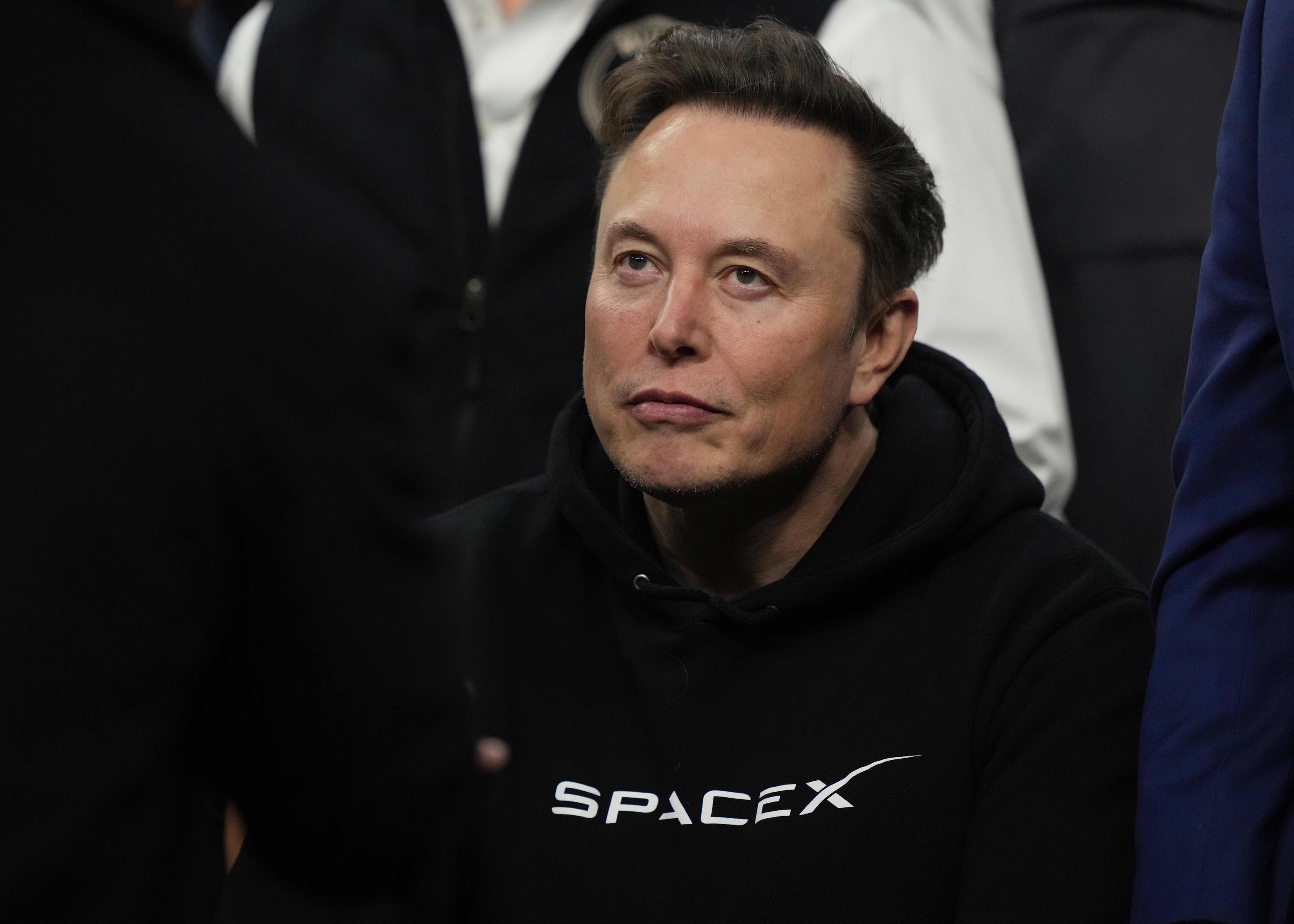The soap opera comes to an end. Tesla's Board of Directors voted overwhelmingly on Thursday to reward its CEO, Elon Musk, with a salary package potentially valued at one trillion dollars (actually a little less), the largest compensation ever conceived, giving the South African 28% of the shares, provided he meets a very ambitious series of goals over the next decade and quintuples the value of the company he founded to a market capitalization of $8.5 trillion.
Such a high remuneration is obviously not common. For comparison, the world's most valuable company, Nvidia, which recently surpassed the five trillion market cap, pays its CEO $50 million a year, and he 'only' owns 3.5% of the company. But there has been nothing normal about the process either, which has included lawsuits, deep boardroom struggles, and enormous media interest.
Musk, whose personal fortune exceeds $460 billion, has pressured, lashed out, and even threatened to leave Tesla if the package was not approved. In recent weeks, he has tweeted more than 60 times on the subject. The chair of the board of directors, Robyn Denholm, warned last week that if shareholders opposed it, Musk "will interpret it as a negative signal about his leadership" and would walk away. He did something similar in the past, after the previous salary package, a whopping $55.8 billion, ended up in court, where it remains stuck because the judge believes the board of directors was not independent, and its members' financial interests depended too much on Musk's mood. "I will not build an army of robots if they can expel me," Musk said in a podcast a few days ago, stating that one of his main obsessions right now was to help humanity control artificial intelligence through xAI.
"Tesla currently does not have a long-term performance award for its CEO, something that retains and incentivizes Elon to focus his efforts on Tesla and lead us at this crucial moment in our history. It's time to change that," the board wrote in a letter to shareholders a few weeks ago. That's why Denholm and other heavyweights on the board of directors, like former Chipotle CFO Jack Hartung and Tesla co-founder JB Straubel, have been making constant rounds in New York to convince the skeptics.
The management team wanted to please the CEO, but above all, they aim to get him to focus on business and forget his political adventures and wars on social media. To achieve up to 12 individual milestones. For example, delivering 20 million electric cars, producing a million autonomous "robotaxis," and an equal number of humanoid robots, called Optimus, which are currently only in development. Tesla's vehicle sales have stagnated over the past year, with a 1% drop in 2024 compared to the previous year, the first time in 12 years that such a thing has happened. Similarly, Tesla's stock plummeted in 2025, after a 54% surge following the electoral victory of their partner Donald Trump, and a 140% increase in the last five years. "Musk's high public profile generates considerable scrutiny, and some have questioned whether his personal opinions or external activities could distract from his leadership at Tesla. While media coverage tends to emphasize these concerns, our direct experience with Musk does not support that description," the letter to shareholders insisted.
Trump had a fairly solid control of the board, as he was allowed to use the 15% he currently has to support himself. Additionally, his brother and friends and partners from other ventures are on the board, but not entirely. Still, up to 75% of shareholders have backed the decision, either because they trust his leadership or because they feared the damage to the company that an abrupt break would have caused.
Last week, the world's largest sovereign wealth fund (and the ninth-largest Tesla shareholder by size), Norway's, said it would vote against, the first institutional investor to oppose. "While we recognize the significant value created under Mr. Musk's visionary leadership, we are concerned about the total amount of the bonus, the dilution, and the lack of risk mitigation associated with the dependence on a key person," declared Norway's Norges Bank Investment Management, which also opposed Musk's previous bonus, in a published statement.
Musk's followers have also mobilized radically. Prominent retail investors, such as Tesla world influencer Sawyer Merritt or Jason DeBolt, threatened to withdraw their positions from 'broker' Charles Schwab & Co. after learning that several ETF funds of the financial magnate voted against Tesla's management proposals, from Musk's salary to the change of the company's registered office from Delaware to Texas. When Glass Lewis and ISS Stoxx, two financial advisory firms, recently recommended that investors reject the salary package, Musk accused them of "corporate terrorism."
To avoid future problems for the leader, moreover, shareholders have voted to move their registered office to Texas, because there a state law allowed banning lawsuits from shareholders owning less than 3% of the company, and only a handful of investment funds meet that threshold, so there will be no legal disputes over remuneration, as happened in the previous case with disgruntled retail investors invoking Delaware laws.
